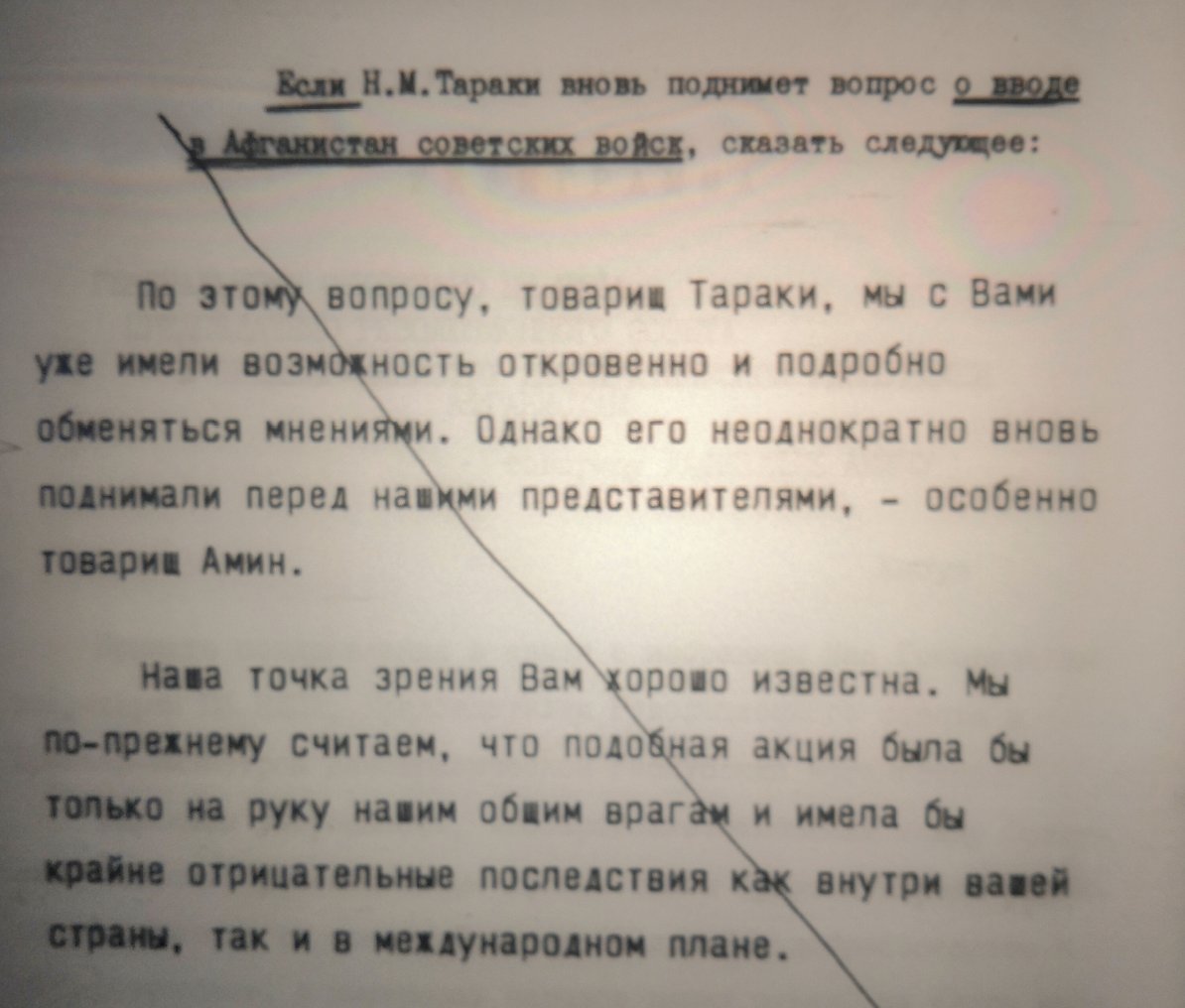
From the annals of Soviet decision-making on Afghanistan, 1979. Many people know that the Soviets were in fact remarkably reluctant to intervene in Afghanistan. We had long known that they refused to intervene in March 1979, despite being pressed to do so by the Afghans.
This here comes from September 1979. In case Taraki (who met with Brezhnev) raised the question, Brezhnev was to say that he could not intervene as it would only help "our common enemies" and have "extremely negative consequences" for Afghanistan and the international situation. 

Of course, a few days after this conversation Taraki was arrested and strangled in prison as Amin consolidated power. Exactly two months later (in early December 1979), the Soviets decided to intervene after all, killing Amin and staying for 10 years at tremendous cost.
This was despite all their previous well-articulated reservations. We know today that the main reason for this remarkable about-face was Moscow's fear that Amin would do a Sadat on them: swap allegiances and turn to the US, leading to the loss of Soviet influence in Afghanistan.
To read more on this remarkable story, stay tuned for my long-suffering brick-of-a-book on the Cold War. It's coming, it's coming! Lots of great stuff in there. Just taking 10 years to write. 😂
• • •
Missing some Tweet in this thread? You can try to
force a refresh




